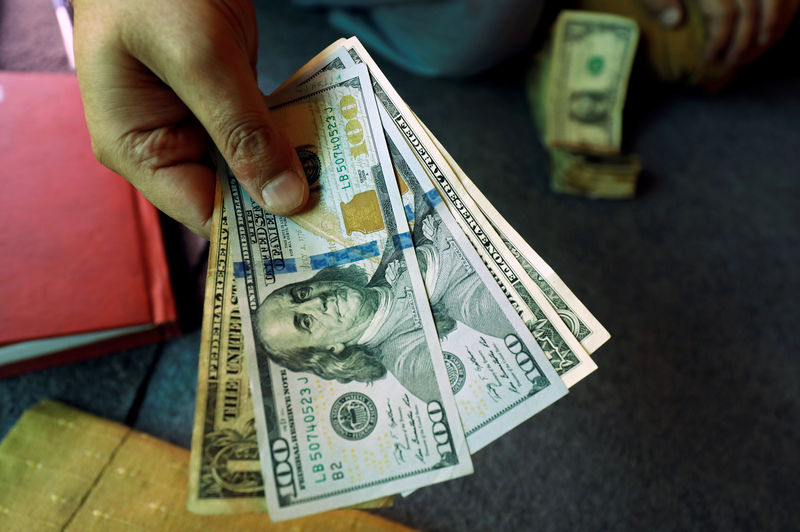Investing.com’s stocks of the week
By Peter Nurse
Investing.com - The dollar was largely unchanged in early European trade Monday, but risk-sensitive currencies, like the Australian and New Zealand dollars were hit hard by fears of a second wave of the Covid-19 virus, particularly in China.
At 3:10 AM ET (0710 GMT), the dollar index, which tracks the greenback against a basket of six other currencies, was up marginally at 97.332. It's now bounced over 1.5% from the lows of last week. USD/JPY traded 0.1% lower at 107.25, while EUR/USD dropped 0.2% to 1.1235.
China reported dozens of new cases of the Covid-19 virus over the weekend, linked to a major wholesale food market in Beijing. Japan also reported an outbreak of new cases in Tokyo, many of which were traced back to nightclubs and bars that had recently reopened.
Throw in a mini-surge in new coronavirus cases in the United States, mainly in the south, and it's easy to see why fears of another outbreak that would inflict more damage on the global economy are growing.
AUD/USD fell 1% to $0.6793, while NZD/USD declined by 0.6% to $0.6405.
Both currencies are traded as liquid proxies for risk sentiment because of their close ties to China's economy and global commodities.
“If this driver continues to be at the forefront of markets' attention, we may likely see further retracement of the recent month's positive risk sentiment and e.g. a stronger broad USD,” said analysts at Danske Bank, in a note to clients.
Disappointing Chinese industrial production and retail sales data for May did little to help these currencies, while USD/CNY rose 0.2% to 7.0975.
Industrial production rose just 4.4% year-on-year and retail sales declined 2.8% year-on-year.
Sterling has also weakened across the board ahead of a meeting between U.K. Prime Minister Boris Johnson, European Commission President Ursula von der Leyen and European Council President Charles Michel to discuss the way forward in Brexit negotiations.
A breakthrough in the deadlocked negotiations seems unlikely at this point, and Johnson has been vocal in not wanting to extend the deadline for trade talks beyond the end of the year.
Additionally, the Bank of England is due to meet on Thursday, and is expected to increase its quantitative easing program by around GBP100 billion ($125 billion), with some forecasts predicting even larger increases as Britain’s economy struggles to recover from the effects of the coronavirus. The OECD warned last week that the U.K. would be the worst hit of the world's major economies, due partly to the greater share of services in its GDP.
GBP/USD dropped 0.6% to 1.2468 and EUR/GBP gained 0.4% to 0.9012.
